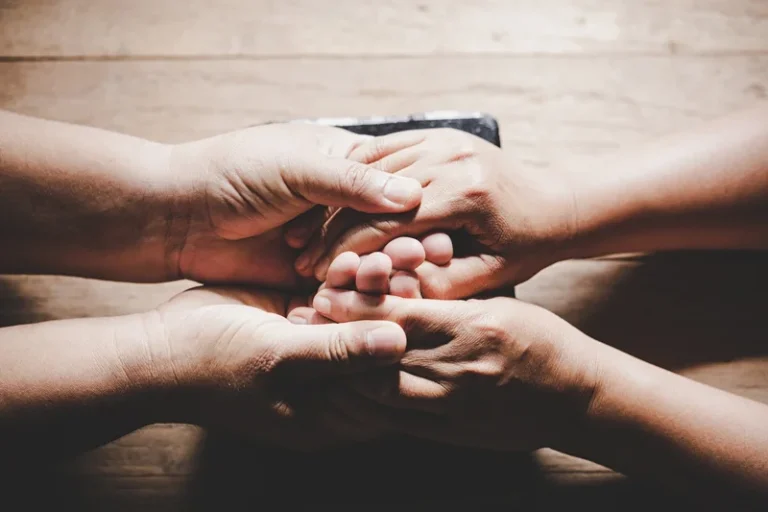
Dr. Moawad regularly writes and edits health and career content for medical books and publications. Having a healthcare professional come to your house to assist with your needs can relieve a lot of added stress on you to keep track of your treatment plan alone. Heidi Moawad is a neurologist and expert in the field of brain health and neurological disorders. Once alcohol use has been addressed, a doctor can focus on treating alcohol-related neuropathy itself. Treatment will depend on the type, location, and severity of your symptoms.
- Symptoms include burning pain in the body, hyperalgesia (increased sensitivity to pain), and allodynia (a condition in which normal stimulus, like a soft touch, produces pain).
- We offer long-term residential addiction treatment for men and women struggling with drug & alcohol addiction.
- If you notice you are developing signs of alcoholic neuropathy (such as numbness after drinking alcohol), in addition to seeing a physician, try to stay away from alcohol altogether.
- I’ve been an alcoholic for years , I’ve been noticing the numbness in my toes and fingers little by little but had no idea about neuropathy until I looked up the relationship this week.
- Early diagnosis and treatment give you the best chance for controlling your symptoms and preventing further damage to your peripheral nerves.
- If left untreated, it can lead to permanent nerve damage and disabilities.
- A common question coming to one’s mind is, ‘can alcoholic neuropathy be reversed?
Symptoms of Alcoholic Neuropathy
Reflexes, muscle strength, sensibility (including light touch, pinprick, vibration, and position awareness), and coordination are all tested during a thorough physical and neurological examination. People with alcoholic neuropathy typically have decreased sensitivity and reflexes. However, long-term excessive alcohol consumption has been linked to peripheral nerve injury, according to a study. Up to 66% of AUD sufferers may have some form of alcohol-related neuropathy, according to research. Avoiding alcohol can help you regain your nutritional balance, relieve your symptoms, and stop additional nerve damage. Recognizing alcohol neuropathy symptoms early is key to preventing further nerve damage.
Can Alcoholic Neuropathy Be Reversed?

Individual health and lifestyle factors also play a critical role in the recovery from alcoholic neuropathy. A person’s metabolic rate, nutritional Halfway house status, and adherence to treatment can all affect the pace of recovery. For instance, improving nutritional intake can help repair nerve damage, while continued alcohol use can exacerbate symptoms and impede healing.
Progressed disease
In cases such as these, the transplant will provide the body with a healthy environment to begin healing from the toxic environment it had prior to the transplant. It’s crucial that you realize which of these conditions have an impact. When you pair them with alcohol, you can make the neuropathy worse. Patients who suffer from nerve damage can feel tingling or burning-like sensations in their arms and feet.


Initially, they may be barely noticeable but can progress to more severe and disabling conditions if alcohol consumption continues. Nerve damage from chronic alcohol consumption can develop over several years. If your doctor confirms a diagnosis of alcoholic neuropathy, they will discuss treatment options, including help for alcohol use disorder. This article provides an overview of alcoholic neuropathy, including symptoms, causes, and diagnosis.

Licenced & Certified by the State Department of Health Care Services
Our team is here to offer compassionate care, support, and guidance every step of the way. The earlier you start addressing alcoholic neuropathy, the better your chances of reversing the damage and getting back to a better quality of life. Thiamine deficiency plays a major role in alcoholic neuropathy, so replenishing this vital nutrient is crucial.
- Psychological support is an important component of treating alcoholic neuropathy to help maintain recovery and avoid relapse.
- It happens when the median nerve, which runs from the forearm into the hand, gets inflamed or squeezed, causing numbness, pain and weakness in the hand and wrist.
- This may help prevent drug dependence and other side effects of chronic use.
Some of your bodily functions are autonomic, which means that you don’t directly control them. Nerves that are part of the autonomic nervous system help to regulate heart rate, body temperature, respiration, and blood pressure. Polyneuropathy involves damage to more than one nerve at the same time, usually multiple nerves throughout the peripheral nervous system and all over the body. Among patients with chronic alcohol use disorder, neuropathy is the most common harmful sequelae. It is estimated that in the United States, 25% to 66% of chronic alcohol users experience some form of neuropathy; however, the true incidence in the general population is unknown. The majority of patients were middle-class, working men, and continuous drinkers were more affected than episodic drinkers.
Other tests:
- If you experience any of these symptoms, it is vital to seek medical attention to determine the cause and begin treatment.
- Toxin accumulation in the body and dietary deficiencies are the causes of alcoholic neuropathy.
- Try the Reveri hypnosis app to manage pain, rewire habits, and take control of your health today.
- A doctor may also want to test the functioning of the kidneys, liver, and thyroid.
- Ataxia can cause unsteadiness in gait and frequent falls in certain people.
- Additionally, it has been discovered that cranberries, blueberries, and grapes are rich in resveratrol, a potent anti-inflammatory substance.
For others, treatment may not reverse existing symptoms but can prevent further nerve damage and help stabilize the condition, offering a better chance at maintaining alcohol neuropathy in the fingertips functionality. Continuing to drink will only make nerve damage worse and block any chance of recovery. Getting professional help for alcohol addiction is key to long-term success.
- However, they usually worsen over time as the neuropathy progresses.
- It can be debilitating, affecting daily activities and overall quality of life.
- Left untreated, alcoholic neuropathy leads to chronic pain, a failure to use critical parts of one’s body, and lasting damage.
- Pain seems consistent in the literature as 1 of the most common complaints and can be the first clinical indication of the disease.
- I was only drinking on weekends recently instead of the daily drinking I did for over a decade so how could it be from alcohol??
- Some may experience only one symptom, while others experience several.

Alcohol being a main contributing factor in alcoholic neuropathy, it is important to control alcohol consumption. Controlling blood glucose levels is equally essential to lower the risk. Any conditions, which can affect the nerves must be treated in time to avoid further nerve damage and increased risk of alcoholic neuropathy. Educate patients to maintain healthy lifestyle, eat healthy food with regular exercise, to follow prescribed medications and appropriate measures for reduced pain or sensations.